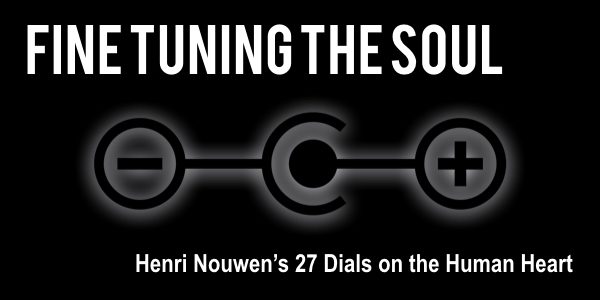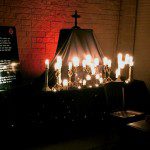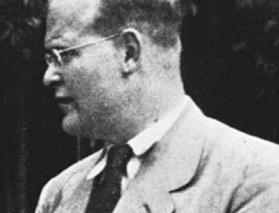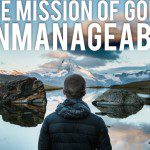One of the popular academic conversations (spilling out into the wider culture of the 1970s) involved new scholarship in the arena of human development. Cognitive Psycho-Social development theory was undergoing a renaissance. Three in particular: Jean Piaget’s theory of cognitive development, Erik Erickson’s Stages of Psychosocial Development, and Lawrence Kohlberg’s stages of moral development—first took academia by storm, then worked their way into popular culture, inventing a new vocabulary with which to describe human development & maturation. Scholars from other fields began borrowing these new theories and methods to reformulate all kinds of things: educational systems, parenting practices, medicine/treatment & diagnosis in children, mental health & psychology, even our criminal justice systems were all impacted. These theories were reshaping major elements of society.
James Fowler brought this approach to Christian moral/spiritual formation. His question was: How does the faith develop in human beings, and does it track along with some of these new descriptions of social-psychological development? Fowler did his primary research while teaching at Harvard while working with the Center for Moral Development (1969-75). He was attempting to give a descriptive account for the spiritual development of human beings that took into account the current scholarship by Piaget, Erickson, and Kohlberg. The resulting book, Stages of Faith, is on something like it’s 38th or 39th printing. Fowler’s stages are a wonderful tool. However, I believe his schema has some obvious weaknesses that Henri Nouwen’s non-stage theory of spiritual formation seems to avoid.
The main problem with Folwer’s Stages is that Piaget, Erickson, and Kohlberg were describing human psycho-social development and the process of maturation, much of which develops, one might say, on a “one-way track.” For example, once you’ve experienced puberty, you don’t have to do it again (thank God). Once you’ve acquired language, you don’t have to relearn those lessons. Once the frontal lobe comes online, certain human capacities begin to fire and they never stop firing. The same cannot be said for spiritual formation in wisdom, understanding, and so on. Much of our spiritual faculties, and hence our spiritual formation, don’t live on a one-way track. These spiritual realities—the spiritual journey as Nouwen called it— live in these polarities that Nouwen describes.
The real weakness of any stages theory (not just Fowler) of spiritual development is the idea that we’re ever really done with stage one. I’m nearly 50 years old and have been pursuing contemplative spirituality since the mid-nineties. I’m telling you I can hardly get through a day without finding myself clear back at stages one and two in one way or another. Dualisms, tribalisms, and the ego crop up again and again.
What Nouwen so accurately describes is the way that spiritual realities live more on a continuum, as polarities, rather than like a train rolling down a one-way track. There are daily swings along these polarities. No matter how far I move toward hospitality, I will still experience and act out of hostility from time to time. I’m never done with any of Nouwen’s movements.
I think of Nouwen’s 26 movements almost like the science of fine-tuning in the field of earth science. There are these 26 dials on the human soul that Nouwen described throughout his writing and teachings. Spiritual formation is tracked not in stages, but in movements. These movements, or polarities or dials on the soul (as I call them) help us track our spiritual health and formation.
These are the 26 Movements or Spiritual Polarities identified by Nouwen. I’ve ordered them intentionally. I have found the first 10 to be the most prominent in ministry. The other 16 are still great, but the top 10 come into constant play in spiritual direction:
- From Loneliness to Solitude
- From Hostility to Hospitality
- From Illusion to Prayer.
- From Alienation to Community
- From Competition to Compassion
- From Dissipation to Homecoming
- From Resentment to Gratitude
- From Sarcasm to Contemplation
- From a Violent to a Redemptive Way of learning
- From Opaqueness to Transparency
- From Fear to Love
- From Sorrow to Joy
- From Relevance to Prayer
- From Blaming to Forgiving
- From Forgiven to Forgiver
- From Fatalism to Faith
- From Worrying to Prayer
- From Mind to Heart
- From Unceasing Thinking to Unceasing Prayer
- From Leading to Being Led
- From Anguish to Freedom
- From Exclusive to Inclusive Community
- From Popularity to Ministry
- From Professionalism to Creative Ministry
- From Aging to Dying
- From Denying to Befriending Death
Each of these function like dials on the soul. e.g., are we dialed more toward loneliness or solitude right now? If so, then we will struggle, because the health/growth of the human soul depends upon shifting that polarity toward solitude. However, we’re never really done with loneliness. And, (this is huge), and even the loneliness can do good things for the soul, because pain can be instructive, right? Pain makes us change and grow and shift toward the polarities that are more human, humane, and humanizing.
I think the critique I have of Nouwen, the piece missing from his schema, is that there are these three big “deaths” than must happen in spiritual maturity. There are seasons where the soul undergoes a massive sea-change, a kind of whole-sale death experience that touch all 26 dials. This is accounted for a little more accurately in stage schemas (especially, I’m thinking of Richard Rohr’s schema). There really are ways of thinking, being, and acting in later stages that cannot come online unless we undergo the a serious death, unless a piece of our soul has died off… a piece that was killing us. Those three big deaths (Dark night of the senses, Dark night of the soul, Dark night of the tomb) are like cutting away the millstone that was dragging us to the bottom of the sea, so we can swim to the top and breathe and live. There are limitations to how far the dials will go until we undergo these three deaths, that usually come first in the late twenties/early thirties, then at mid-life, and finally late in life,
Nouwen obviously deals with all three of those deaths thematically time and a gain. Plus, he gives pain and wounded-ness such a prominent place in his spirituality. Virtually none of those three deaths go untreated in his work. This is just a weakness in the structure of the polarity or 26 movements schema. The three deaths tend to be more clearly stated and explained in stages theories, in part because they happen predictably at certain stages of life. One could say the three deaths are more like puberty or language acquisition. They proceed on more of a one-way track. I see these deaths as themes in Nouwen’s work, but I don’t see them in the structure of Nouwen’s 26 movements.
That said, I still think an argument can be made that Nouwen’s movements are a better tool, or a more accurate snapshot of the soul than the stages theories. The dials emphasize the reality that we’re never done fine tuning. They subvert the human impulse to try and achieve the next level. My imagination is firing for a way to alter his structure just a little bit, to try and integrate the three big deaths into the schema. Maybe a way where all 26 movements exist in these three seasons of life–early, mid, and late. All 26 dials function in each of the three phases. The deaths kill off a bunch of things that drag the dials down, and hopefully toward the end of life, all 26 are more consistently tuned toward the human, humane, and humanizing side of the polarity.
*If I could add one dial to Nouwen’s schema it would be the movement From Exploitation to Stewardship. Of course that concept exists in his “From Dissipation to Homecoming” polarity. But, given the status of the earth and our abuse of natural resources, I would want to have a dial on the soul that registers stewardship of divine gifts vs. the dissipation of them.













